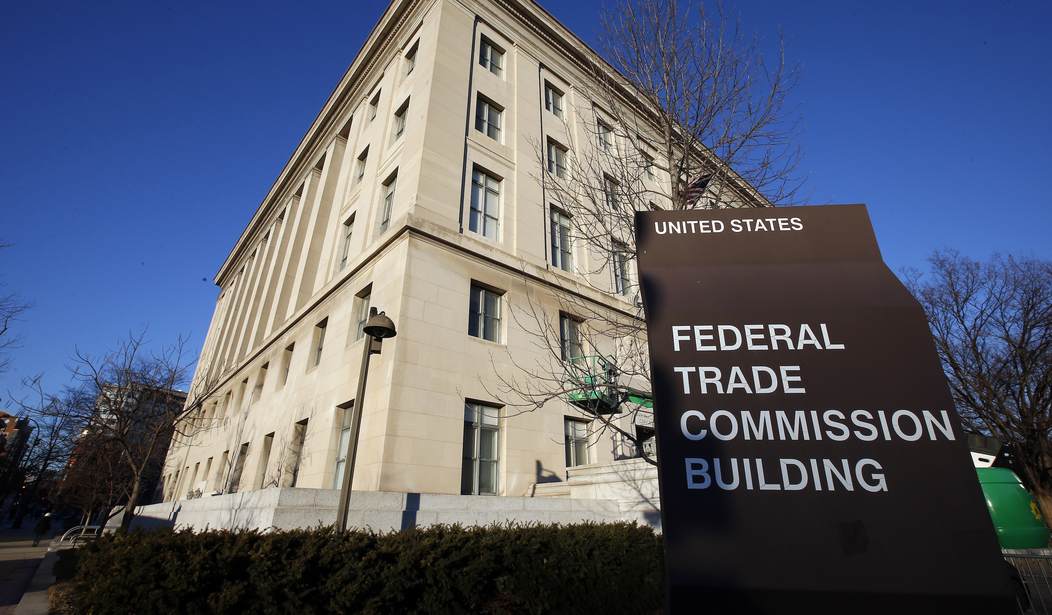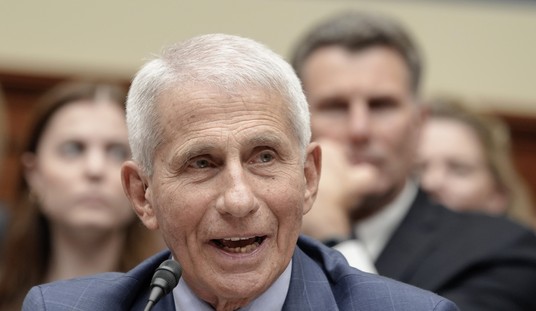On July 26, Federal Trade Commission (FTC) Chair Lina Khan accused the House Judiciary Committee of “a campaign to intimidate and harass” several agency staffers. Khan’s indignation over the Congress’s overdue oversight efforts plainly illustrates her desire for independence from all democrat checks, and independence from established legal precedent and ethical norms.
As the head of an agency that investigates corporate deception, one might assume Khan would refrain from dodging and deceiving Congress. Khan leads the vanguard of the neo-Brandeisian school – recalling the Progressive Era trustbuster, Justice Louis Brandeis – which favors interventionist, aggressive antitrust enforcement. Given these radical policy preferences, one might further assume she would take particular care to avoid ethics debacles or needless congressional squabbles.
However, that has not been the case. Khan (it seems) ignored ethics guidance to prosecute her agency’s now-defunct case against Meta’s acquisition of the virtual-reality (VR) developer Within, and obfuscated that fact before Congress.
Meta in 2022 requested Khan’s recusal from the case. Shortly before her FTC appointment, Khan had stated repeatedly that regulators ought to block any merger the company attempts. This, Meta suggested, constituted intolerable prejudice. However, Khan decided against recusal, which the commission’s Democrats affirmed by vote. Their motive seems simple; without Khan, the challenge would have stalled.
Until Bloomberg published inte
“Are there any instances where you have not followed [Designated Agency Ethics Official’s (DEAO)] advice?” Rep. Cathy McMorris Rodgers (R-WA) asked Khan at a hearing in April. Khan simply answered, “No,” adding that she has only “taken actions that are consistent with the legal statements that the DEAO has made.”
Recommended
At best, Khan told most of the truth while lying through her teeth, as they say. While perhaps literally true – contingent on one’s interpretation of advice – Khan’s answer omits critical context: The ethics official in question had counseled her to recuse herself from the action against Meta, as Bloomberg revealed. That assessment was nonbinding, though, but Khan’s decision to discard it was unprecedented in the history of the FTC. “To the best of my knowledge,” the ethics official wrote, “no FTC employee has participated in a specific party matter when the agency designee has recommended recusal on appearance or other federal ethics grounds.”
Then-Commissioner Christine Wilson, a Republican, agreed that Khan had disqualified herself. But Wilson’s Democrat colleagues redacted her dissent heavily, which “served no purpose but to protect Ms. Khan from embarrassment,” as Wilson wrote in a fiery resignation letter in The Wall Street Journal. If Khan had acted ethically throughout the matter as she insists, the Democrats’ redactions would seem unneeded.
Besides Wilson, and Noah Joshua Phillips (another recently departed Republican commissioner), many FTC staffers also object to the Khan regime’s misconduct. Just 49 percent of FTC respondents told the Office of Personnel Management in 2022 that the agency’s senior leadership “maintain high standards of honesty and integrity.” In 2020, the year before Khan’s ascension, 87 percent said that. Khan also appears to prefer ideologically aligned academics to experienced agency staff, the New York Post reported last year, and many senior officials have simply quit. One might surmise that many staffers dislike loose ethics dealings and the pulverization of decades of sound antitrust precedent.
All this shadiness furthers a radical antitrust and, ultimately, economically controlling agenda.
The FTC’s Section 5 policy statement, issued in November, traded the established consumer welfare standard for identifying illegal business practices for a shockingly vague one that amounts to “I know it when I see it.” Wilson, who dissented, argued that “the Policy Statement provides that merely labeling conduct with an appropriate adjective can establish liability.”
What’s more, Khan’s FTC has embarked on rulemaking procedures that strain its statutory authority past credulity. These efforts clearly usurp Congress’s authority, and they would likely fold under judiciary scrutiny as the Supreme Court builds a counteroffensive against administrative overreach in such cases as West Virginia v. EPA.
For example, the FTC in August solicited public comment on a sprawling privacy inquiry. “Congress…is where national privacy law should be enacted,” then-Commissioner Phillips stated. “So I don’t think we should do this,” he added. In January, the agency proposed a nationwide ban on non-compete clauses. “I am dubious that three unelected technocrats have somehow hit upon the right way to think about non-competes, and that all the preceding legal minds to examine this issue have gotten it wrong,” then-Commissioner Wilson wrote.
The FTC brazenly coordinates with international regulators to implement the European Union’s crushing digital regulatory framework, which many recognize as thinly veiled protectionism against American firms due to Europe’s lack of any comparable tech sector. The FTC even reportedly enlisted them to stall a merger between Illumina and Grail, two medical-technology companies. An FTC administrative law judge dismissed the agency’s own paltry claim against the merger.
Chair Khan hopes singlehandedly to balloon her agency’s powers, to reanimate a previous era of antitrust. That era ended after decades of economic meddling when concerned policymakers curtailed rogue antitrusters’ excesses. Khan and her ideological compatriot at the Department of Justice, Assistant Attorney General Jonathan Kanter, have brought myriad legally inventive – and dubious – enforcement cases. Consequently, they have endured repeated courtroom setbacks as judges reject their militancy.
Loose morals and revolutionary policy aspirations ill suit the head of a prominent executive agency in a free, democratic nation. America’s Founders understood this, however. “The essence of Government is power; and power, lodged as it must be in human hands, will ever be liable to abuse,” James Madison said in 1829.
Therefore, as the Virginian wrote decades earlier in Federalist No. 57, constitutions must “take the most effectual precautions for keeping them virtuous whilst they continue to hold their public trust.” The American Constitution did just that. Now, the judiciary – which reviews the FTC’s overreaches – and Congress – which can constrain the FTC’s statutory authority – must act.
David B. McGarry is a policy analyst at the Taxpayers Protection Alliance.

























Join the conversation as a VIP Member